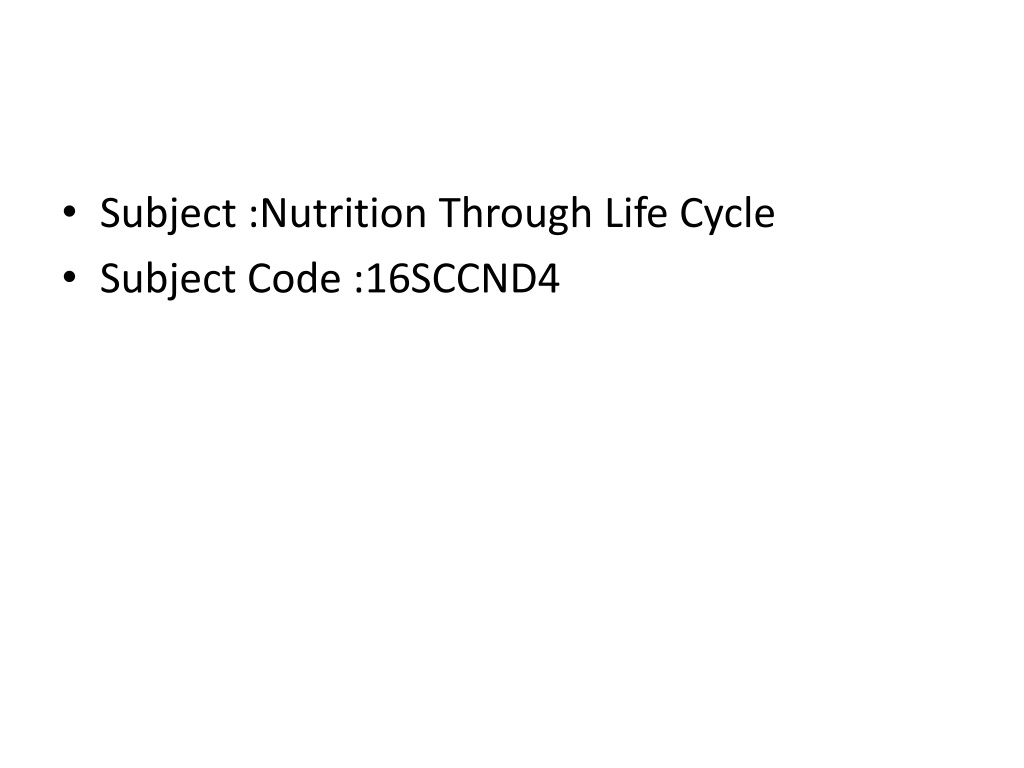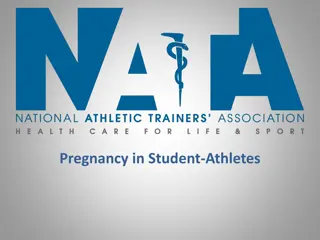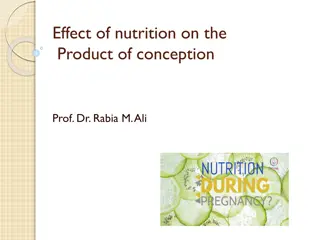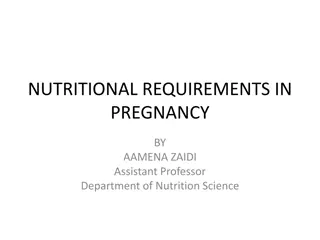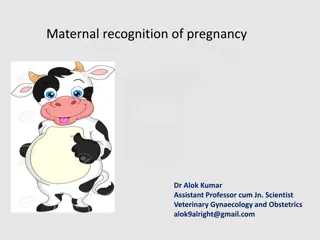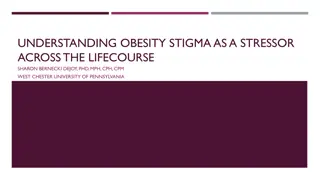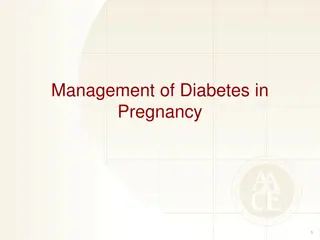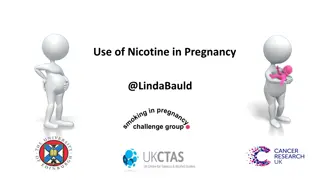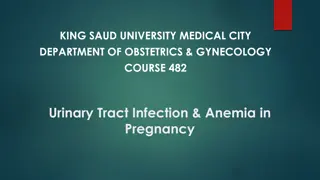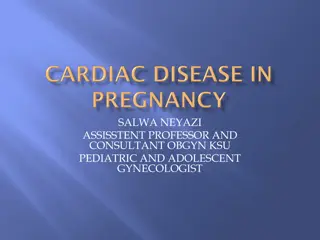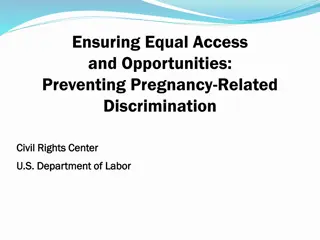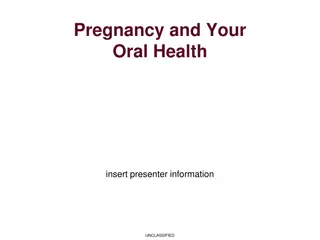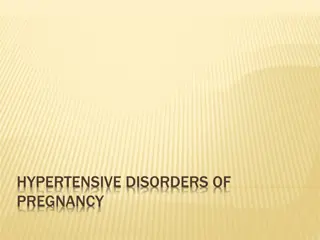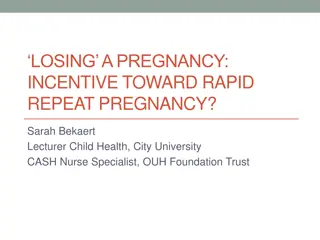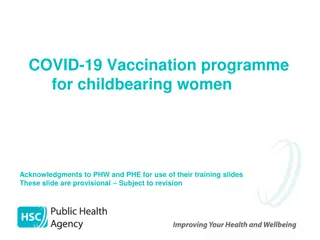Understanding Pregnancy Stages and Changes
Discover the three stages of pregnancy - first, second, and third trimester - lasting a total of 40 weeks. From conception to birth, delve into the physical and emotional changes a woman may experience, including hormonal fluctuations and adjustments in daily routines.
Download Presentation

Please find below an Image/Link to download the presentation.
The content on the website is provided AS IS for your information and personal use only. It may not be sold, licensed, or shared on other websites without obtaining consent from the author. Download presentation by click this link. If you encounter any issues during the download, it is possible that the publisher has removed the file from their server.
E N D
Presentation Transcript
Subject :Nutrition Through Life Cycle Subject Code :16SCCND4
STAGES OF PREGNANCY UNIT 1
The Three Stages of Pregnancy (1st, 2nd, and 3rdTrimester)
A typical pregnancy lasts 40 weeks from the first day of your last menstrual period (LMP) to the birth of the baby. It is divided into three stages, called trimesters: first trimester, second trimester, and third trimester.
Prenatal Development: Three Stages Germinal stage Zygote Embryonic stage Embryo Fetal stage Fetus
conception to about the 12thweek of pregnancy marks the first trimester. The second trimester is weeks 13 to 27, and the Third trimester starts about 28 weeks and lasts until birth First Trimester
First Trimester: Early Changes in a Woman's Body First Trimester: Week 1 (conception) Week 12 A missed period may be the first sign you are pregnant.
First Trimester: Physical and Emotional Changes a Woman May Experience
Hormonal changes will affect almost every organ in the body. Some signs of early pregnancy include: Extreme Fatigue Tender, swollen breasts. Nipples may protrude. Nausea with or without throwing up Cravings or aversion to certain foods Mood swings Constipation Frequent urination Headache Heartburn Weight gain or loss
First Trimester: Changes in a Woman's Daily Routine
Some of the changes you experience in your first trimester may cause you to revise your daily routine. You may need to go to bed earlier or eat more frequent or smaller meals. Some women experience a lot of discomfort, and others may not feel any at all. Each pregnancy is different and even if you've been pregnant before you may feel completely different with each subsequent pregnancy.
At 4 weeks, your baby is developing: The nervous system (brain and spinal cord) has begun to form. The heart begins to form. Arm and leg buds begin to develop. Your baby is now an embryo and1 25of an inch long.
At 8 weeks, the embryo begins to develop into a fetus: All major organs have begun to form. The baby's heart begins to beat. The arms and legs grow longer. Fingers and toes have begun to form. Sex organs begin to form. The face begins to develop features. The umbilical cord is clearly visible At the end of 8 weeks, your baby is a fetus, and is nearly 1 inch long, weighing less than of an ounce (3.544 grams). 1 ounce - 28.35 grams
The end of the first trimester is at about week 12, at this point in your baby's development: The nerves and muscles begin to work together. Your baby can make a fist. The external sex organs show if your baby is a boy or girl. Eyelids close to protect the developing eyes. They will not open again until week 28. Head growth has slowed, and your baby is about 3 inches long, and weighs almost an ounce.
Second trimester: Week 13 Week 28 Second Trimester: Changes a Woman May Experience
Once you enter the second trimester you may find it easier than the first. nausea (morning sickness) and fatigue may lessen or go away completely. However, you will also notice more changes to your body. That "baby bump (enlarged abdomen of a pregnant women) will start to show as your abdomen expands with the growing baby. By the end of the second trimester you will even be able to feel your baby move!
Second Trimester: Physical and Emotional Changes in a Woman
Some changes you may notice in your body in the second trimester include: Back, abdomen, groin, or thigh aches and pains Stretch marks on your abdomen, breasts, thighs, or buttocks Darkening of the skin around your nipples A line on the skin running from belly button to pubic hairline (linea nigra)
Patches of darker skin, usually over the cheeks, forehead, nose, or upper lip. This is sometimes called the mask of pregnancy (melasma, or Chloasma facies). Numb or tingling hands (carpal tunnel syndrome) Itching on the abdomen, palms, and soles of the feet. Swelling of the ankles, fingers, and face.
As your body changes in the second trimester, your baby continues to develop: The musculoskeletal system continues to form. Skin begins to form and is nearly translucent. Meconium develops in your baby's intestinal tract. This will be your baby's first bowel movement. Your baby begins sucking with the mouth (sucking reflex). Your baby is about 4 to 5 inches long and weighs almost 3 ounces
At about 20 weeks in the second trimester, your baby continues to develop: Your baby is more active. You might feel movement or kicking. Your baby is covered by fine, feathery hair called lanugo and a waxy protective coating called vernix. Eyebrows, eyelashes, fingernails, and toenails have formed. Your baby can even scratch itself. Your baby can hear and swallow. Now halfway through your pregnancy, your baby is about 6 inches long and weighs about 9 ounces.
By 24 weeks, even more changes occur for your growing baby: The baby's bone marrow begins to make blood cells. Taste buds form on your baby's tongue. Footprints and fingerprints have formed. Hair begins to grow on your baby's head. The lungs are formed, but do not yet work. Your baby has a regular sleep cycle. If your baby is a boy, his testicles begin to descend into the scrotum. If your baby is a girl, her uterus and ovaries are in place, and a lifetime supply of eggs has formed in the ovaries. Your baby stores fat and weighs about 1 pounds(453.592 grams), and is 12 inches long.
Third Trimester Third Trimester: Week 29 Week 40 (birth)
Third Trimester women may Experience Changes The third trimester is the final stage of pregnancy. Discomforts that started in the second trimester will likely continue, along with some new ones. As the baby grows and puts more pressure on your internal organs, you may find you have difficulty breathing and have to urinate more frequently. This is normal and once you give birth these problems should go away.
Third Trimester: Emotional and Physical Changes a Woman May Experience
In the third and final trimester you will notice more physical changes, including: Swelling of the ankles, fingers, and face. Tender breasts, which may leak a watery pre-milk called colostrum Your belly button may protrude The baby "dropping," or moving lower in your abdomen Contractions, which can be a sign of real or false labor Other symptoms you may notice in the third trimester include shortness of breath, heartburn, and difficulty sleeping
Third Trimester: Changes as the Due Date Approaches
Other changes are happening in your body during the third trimester that you can't see . As your due date approaches, your cervix becomes thinner and softer in a process called effacement that helps the cervix open during childbirth. Your doctor will monitor the progress of your pregnancy with regular exams, especially as you near your due date.
At 32 weeks in the third trimester, your baby's development continues: Your baby's bones are soft but fully formed. Movements and kicking increase. The eyes can open and close. Lungs are not fully formed, but practice "breathing" movements occur. Your baby's body begins to store vital minerals, such as iron and calcium. Lanugo (fine hair) begins to fall off. Your baby is gaining about pound a week, weighs about 4 to 4 pounds, and is about 15 to 17 inches long.
At 36 weeks, as your due date approaches, your baby continues development: The protective waxy coating (vernix) thickens. Body fat increases. Your baby is getting bigger and has less space to move around. Movements are less forceful, but you will still feel them. Your baby is about 16 to 19 inches long and weighs about 6 to 6 pounds
Finally, from 37 to 40 weeks the last stages of your baby's development occur: By the end of 37 weeks, your baby is considered full term. Your baby's organs are capable of functioning on their own. As you near your due date, your baby may turn into a head-down position for birth.
